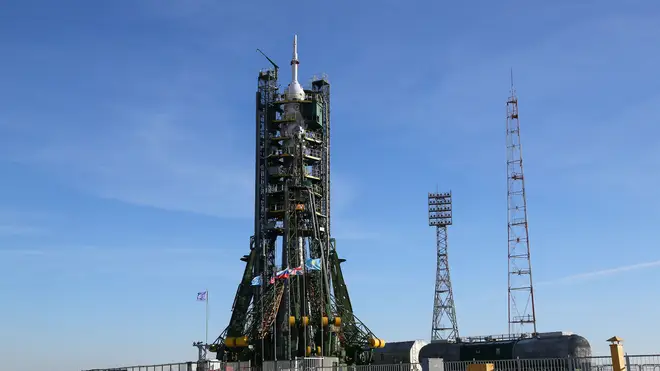
Richard Spurr 1am - 4am
3 March 2022, 14:14

The communications firm said its board had voted to suspend all launches of satellites from Baikonur Cosmodrome.
A satellite launch by a communications firm with UK Government backing will not go ahead after the company’s board suspended use of a Russian-operated spaceport.
OneWeb was due on Friday to launch 36 broadband satellites in Kazakhstan, in an operation that would have used Russian Soyuz rockets and have been overseen by the Russian space agency.
But following political pressure after the Kremlin’s invasion of Ukraine, the board of the London-based company voted to “suspend all launches” from the Baikonur Cosmodrome in a move welcomed by the UK Government, which is a major shareholder.
Business Secretary Kwasi Kwarteng tweeted: “The UK Government supports OneWeb’s decision.
“In light of Russia’s illegal and unprovoked invasion of Ukraine, we are reviewing our participation in all further projects involving Russian collaboration.”
The UK Government supports OneWeb’s decision
In light of Russia’s illegal and unprovoked invasion of Ukraine, we are reviewing our participation in all further projects involving Russian collaboration https://t.co/dQapXfzsuf
— Kwasi Kwarteng (@KwasiKwarteng) March 3, 2022
Darren Jones, Labour chairman of the Commons Business, Energy and Industrial Strategy Committee, had written to ministers this week to question whether the collaboration between a company with UK Government investment and Russia should be deemed “inappropriate” given Moscow’s attack on its neighbour.
The UK took a £400 million share in the failed digital firm to rescue it from bankruptcy in July 2020, as part of a consortium with India’s Bharti Global, following a bidding war.
The move allowed OneWeb to continue its role in the race to beam internet access across the globe from satellites in low Earth orbit.
As well as domestic pressure on the company, demands had been exerted on OneWeb and the UK Government by the Russian space agency, Roscosmos, before the launch at the Moscow-run Baikonur launchpad.
On Wednesday, agency chief Dmitry Rogozin said it wanted “guarantees” the satellites would not be used by Western military and called for the “removal of the British government from the list of shareholders”, according to press agency Interfax.
Mr Rogozin also told the Rossiya 24 television channel that Russia would “keep the money” paid by OneWeb in the event the launch was cancelled, citing the “force majeure created by the aggressive policy of the West and the anti-Russian sanctions”.
Statement:
The Board of OneWeb has voted to suspend all launches from Baikonur. pic.twitter.com/p8l80FGxId
— OneWeb (@OneWeb) March 3, 2022
Mr Kwarteng responded by saying the UK would not be selling its OneWeb share, with the company’s board voting on Thursday morning to suspend Friday’s launch.
Asked about the situation on Wednesday, Downing Street said it was “right” that questions were being raised about “space co-operation” with Moscow and that it had been “carefully monitoring” the OneWeb launch before its subsequent cancellation.
As of last month, OneWeb had 428 satellites in orbit, with another third of its LEO satellite fleet still to be readied as part of its mission to provide “high-speed, low-latency global connectivity”.
The firm is aiming to have 558 satellites, plus in-space spares, in operation to provide global coverage.
It is currently in talks with French partner Arianespace about where future launches can take place, with five satellite launches, paid for in 2020, still to take place.
The PA news agency understands that the US, Japan and India are all being considered as locations for future take-offs.
Chris McLaughlin, chief of government, regulatory and engagement at the company, said: “I can confirm OneWeb has suspended all of its launches from Baikonur.
“Our emphasis was on getting our staff out safely.”
He said advice received by the company about how best to comply with Itar (International Traffic in Arms Regulations) rules – US defence regulations – was to “get the satellites into space, which is why we were trying to get the launch going”.